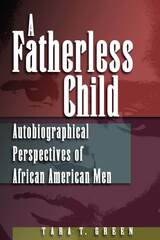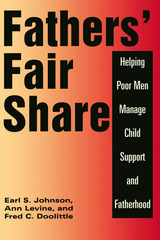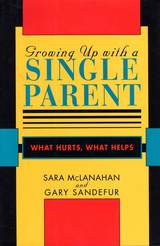

Through her analysis, Green emphasizes the role of community as a father-substitute in producing successful black men, the impact of fatherlessness on self-perceptions and relationships with women, and black men’s engagement with healing the pain of abandonment. She also looks at why these four men visited Africa to reclaim a cultural history and identity, showing how each developed a clearer understanding of himself as an American man of African descent.


Nonwhite and white, rich and poor, born to an unwed mother or weathering divorce, over half of all children in the current generation will live in a single-parent family--and these children simply will not fare as well as their peers who live with both parents. This is the clear and urgent message of this powerful book. Based on four national surveys and drawing on more than a decade of research, Growing Up with a Single Parent sharply demonstrates the connection between family structure and a child's prospects for success.
What are the chances that the child of a single parent will graduate from high school, go on to college, find and keep a job? Will she become a teenage mother? Will he be out of school and out of work? These are the questions the authors pursue across the spectrum of race, gender, and class. Children whose parents live apart, the authors find, are twice as likely to drop out of high school as those in two-parent families, one and a half times as likely to be idle in young adulthood, twice as likely to become single parents themselves. This study shows how divorce--particularly an attendant drop in income, parental involvement, and access to community resources--diminishes children's chances for well-being.
The authors provide answers to other practical questions that many single parents may ask: Does the gender of the child or the custodial parent affect these outcomes? Does having a stepparent, a grandmother, or a nonmarital partner in the household help or hurt? Do children who stay in the same community after divorce fare better? Their data reveal that some of the advantages often associated with being white are really a function of family structure, and that some of the advantages associated with having educated parents evaporate when those parents separate.
In a concluding chapter, McLanahan and Sandefur offer clear recommendations for rethinking our current policies. Single parents are here to stay, and their worsening situation is tearing at the fabric of our society. It is imperative, the authors show, that we shift more of the costs of raising children from mothers to fathers and from parents to society at large. Likewise, we must develop universal assistance programs that benefit low-income two-parent families as well as single mothers. Startling in its findings and trenchant in its analysis, Growing Up with a Single Parent will serve to inform both the personal decisions and governmental policies that affect our children's--and our nation's--future.
READERS
Browse our collection.
PUBLISHERS
See BiblioVault's publisher services.
STUDENT SERVICES
Files for college accessibility offices.
UChicago Accessibility Resources
home | accessibility | search | about | contact us
BiblioVault ® 2001 - 2024
The University of Chicago Press









